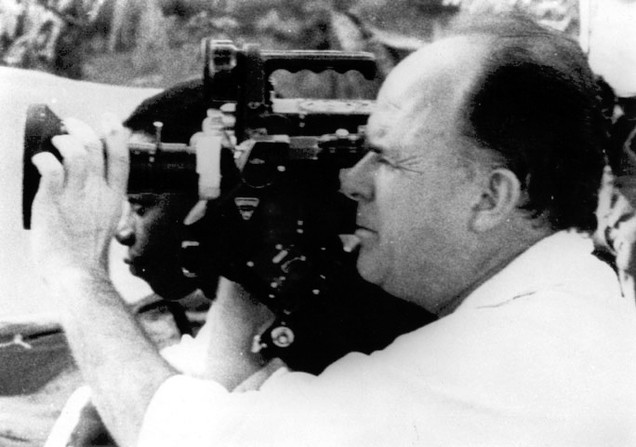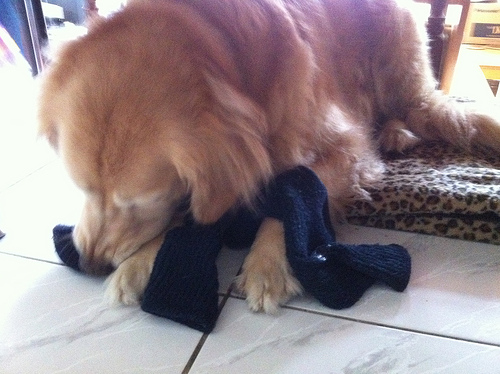We are very happy to announce that our film, Please Don’t Beat Me, Sir!, has been officially selected to have its world premiere at the 2011 Busan International Film Festival (BIFF) in October! The Independent listed BIFF (“Asia’s largest film festival”) as one of the top twelve film festivals of 2011.

In order to make the most of this exciting opportunity, we need your help to make an exhibition-ready copy of the film to show at Busan. In return, we are offering our supporters the opportunity to watch a special “Sneak Preview” version of the film, either online or as a DVD. Read on to learn how you can be one of the first people to watch the film by making a donation.
Please Don’t Beat Me, Sir!
Please Don’t Beat Me, Sir! is about a troupe of young Chhara actors using theater to fight police brutality and the stigma of criminality. The Chhara are one of 198 communities in India, over sixty million people, whose grandparents were labeled “born criminals” by the British. Although the British are long gone, the stigma still remains.
To learn more about the film and make a donation visit our webpage.
Crowd-sourced Filmmaking
A significant portion of the film’s budget came from individual donations collected over the internet. Donations received during our initial round of online fundraising ranged from $15 to $5000. The film wouldn’t have been possible without every one of these donations. People have also helped out in other ways: translating subtitles, recording music, designing the poster, etc. We also received grants and assistance from The Bhasha Trust, The New York State Council on the Arts, and the Asian Cinema Fund.
Now, after five years, and thanks to your support, we are ready to show the film to the world. Our goal is to have as many people see the film as possible. For a documentary film that means trying to get on TV. Film festivals like Busan are a great way to meet producers and purchcasing agents, but we’ll be competing with hundreds of other films showing at the same festivals. That means having the best-quality exhbition master we can afford, attending the film festivals in person to meet with potential buyers, and even hiring a professional publicist and graphic designer to help promote the film. We can’t do any of this without your help.
See the Film Now!
We’ve been overwhelmed by all the support and encouragement we’ve received, and we’re happy that we finally have something to give people in return for their generosity. Starting today you can watch a special “Sneak Preview” of the film online (this includes a download link) or, for a little bit more, we’ll send you the DVD.
For every level of donation we also have some special rewards, including a signed poster, your name in the credits, your name on our IMDB page, and even (for the most generous donors) a private screening with the directors.
Donate now.
This Sneak Preview is intended for personal use only, and is not intended for institutional sales. If you would like to use the film for teaching, or for public screenings, please contact us directly.
Goalposts
We’ve created a series of goalposts for this final round of fundraising. Each goalpost we reach will exponentially increase the film’s chances of success. The first twenty-two thousand dollars are essential—they will pay for an exhibition quality mix and color correction—after that we will spend as much on travel and publicity as we can raise. Everything we raise will go towards the film. All donations are tax-deductible (for U.S. taxpayers).
Donate now.

1st Goalpost: $24,000 for an Exhibition-Ready Copy.
This involves color correction and an “online” edit at a professional studio. [Watch a short video about the difference color correction can make.] Even the HD tapes required by some festivals are expensive. We urgently need to reach this goal in time for the Busan International Film Festival in October.
2nd Goalpost: Travel and Accommodation for Three to Four Festivals or Markets @ $3,000 each (max $12,000).
Since we live in Taiwan this is more expensive for us, and high oil prices mean tickets are more expensive now. But it is essential that at least one of us attend in person if we are going to close a deal.
3rd Goalpost: $10,000 to Hire a Publicist and a Graphic Designer
If we can raise a total of $44,000, the last $10,000 will pay to hire a publicist and a designer. To really do things properly we need to spend money publicizing the film. Making posters and post cards is cheap enough, but if we could higher professional graphic designers and a publicist we feel we could have an even bigger impact.
Donate now.
Other Ways To Help
The easiest way you can help is by spreading the word. Share our page on Facebook, Twitter, or Google+. Share our trailer. Like our Facebook page. Or just tell your friends about the film. Independent documentaries like ours live or die by word-of-mouth. You are our buzz-machine and we depend on you to help get the word out.
If you have a blog or newspaper or journal and you’d like to review the film, just let us know and we’ll send you a review copy of the DVD. If you are a graphic designer or publicist who can donate your services, you could help us meet our third goalpost before we’ve even started fundraising. And if you have another way you’d like to help just let us know! Thank you.




